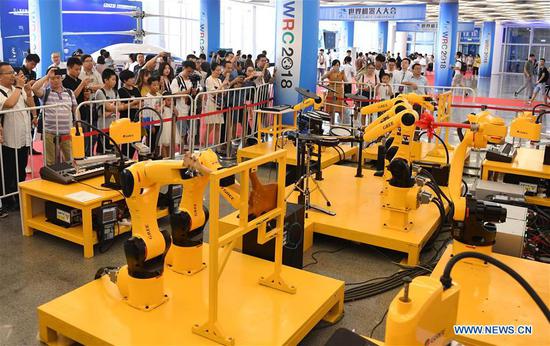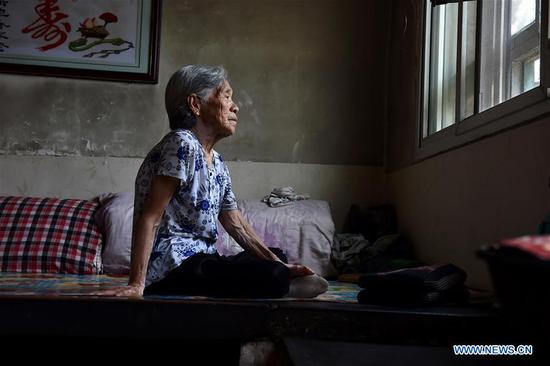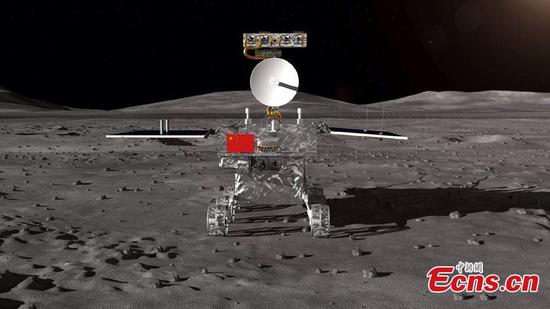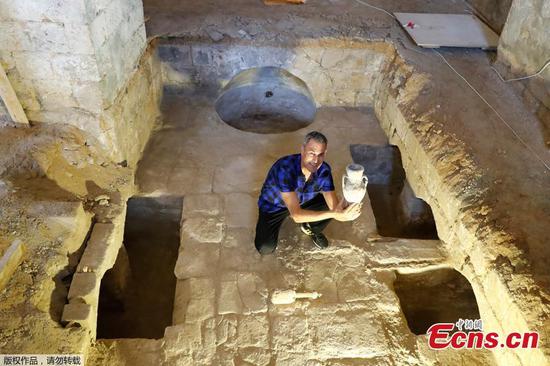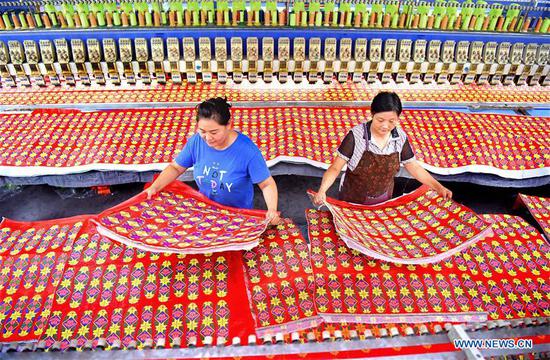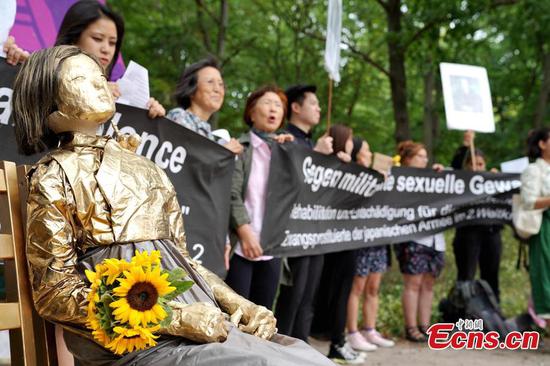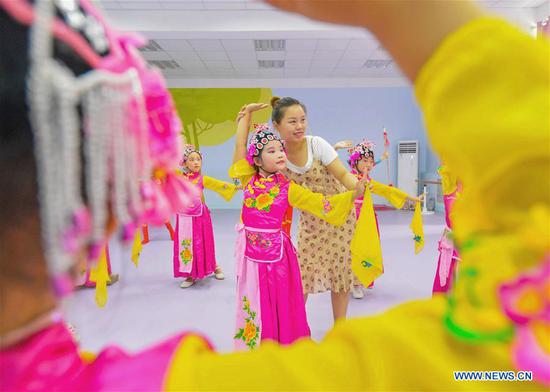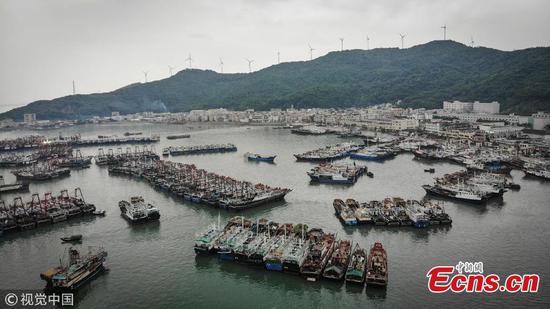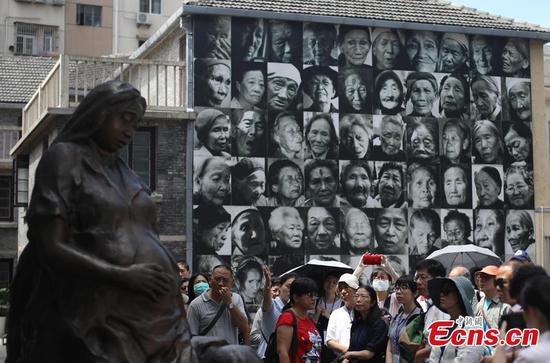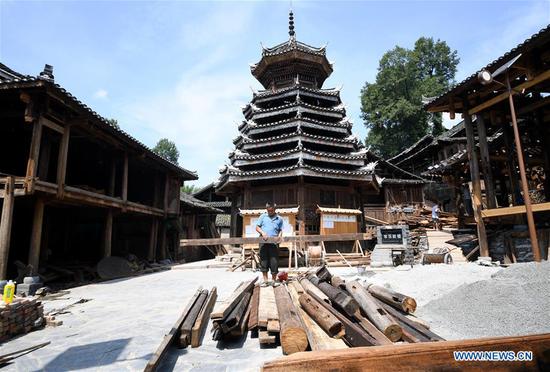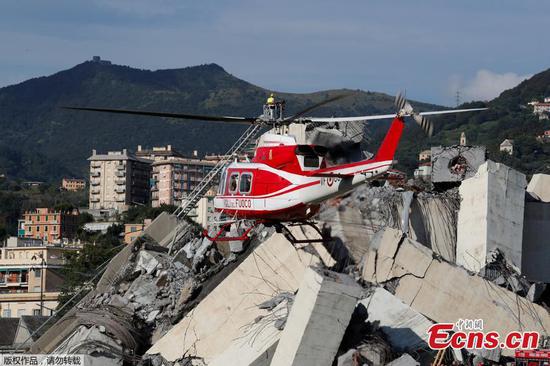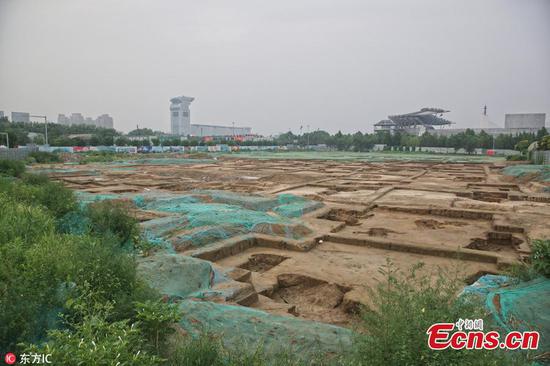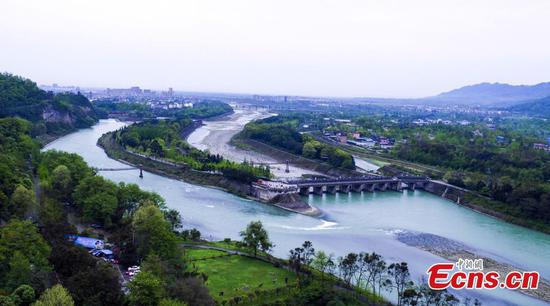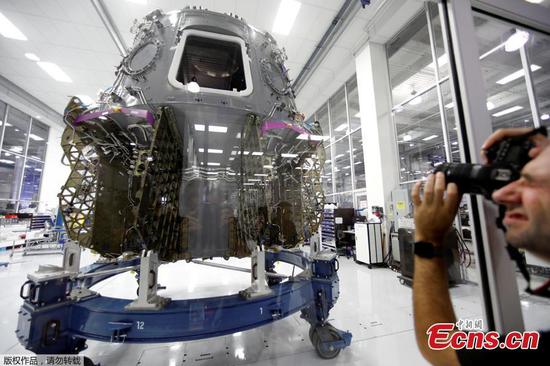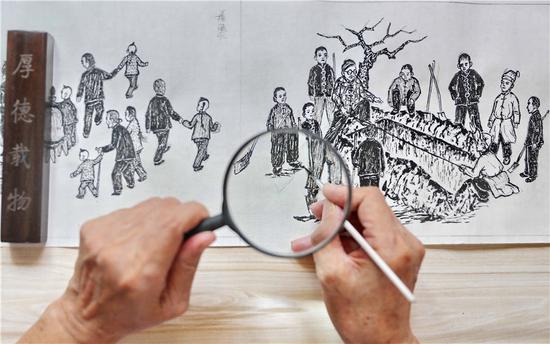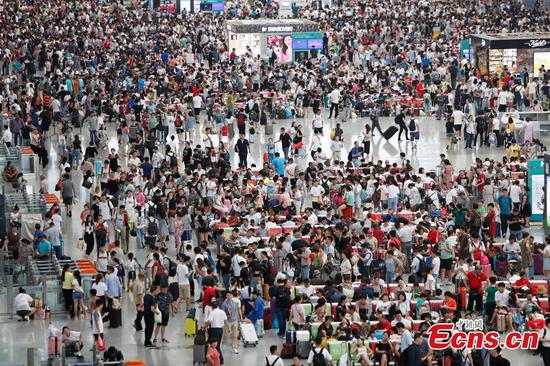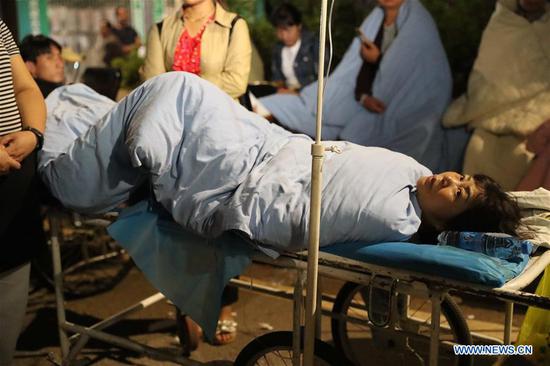Vice-Premier Han Zheng said on Wednesday that the development of the Guangdong-Hong Kong-Macao Greater Bay Area must fully utilize the advantages of the "one country, two systems" principle. It also must unleash the integrated power of Guangdong province and the Hong Kong and Macao special administrative regions, Han said.
The member of the Standing Committee of the Political Bureau of the 19th Central Committee of the Communist Party of China outlined instructions, chairing the first official meeting of the nation's top decision-making unit on the area's development-the leading group for the development of the Guangdong-Hong Kong-Macao Greater Bay Area.
Implementation of the Greater Bay Area is a national strategy planned and deployed by Xi Jinping, general secretary of the CPC Central Committee, Han said.
Development of the city cluster, consisting of nine mainland cities and two special administrative regions, should uphold "one country, two systems" and strictly adhere to the national Constitution and the Basic Law-the constitutional documents of the Hong Kong and Macao SARs.
Implementation of the Bay Area development must stay committed to the basis of "one country", and leverage well the benefits of "two systems", Han said.
Promoting high-quality development means to fully utilize the integrated advantages of Guangdong and the two SARs in order to develop the region into a world-class city cluster with international competitiveness, and to facilitate the country's overall and long-term development, including the Belt and Road Initiative, Han said.
The central government will support Hong Kong's effort to develop into an international innovation and technology center, and support Macao's development as a center of traditional Chinese medical science and technology, Han said. It also will grow the Bay Area into an innovation center.
Han stressed the importance of innovation, all-around coordination, environmental protection, openness and cooperation for mutual benefits and people's better livelihood in the development of Bay Area.
Han said the national development strategy serves as a key platform for Hong Kong and Macao's integration into national development. It also will facilitate new opportunities for their residents, especially youth, and maintain long-term prosperity and stability there. It will inject stronger vitality to the Pearl River Delta and drive the development of neighboring cities, Han added.
This was the first time that the chief executives of the two SARs-Carrie Lam Cheng Yuet-ngor and Fernando Chui Sai-on-were included in the country's top decision-making units.
Welcoming the arrangement, Lam said development of the Bay Area relies on institutional innovation and policy breakthroughs. She said it is the kind of innovation needed, and it allows them to directly participate in top-level decision-making for the region and the comprehensive coordination of the central government.
"The Hong Kong SAR government will give full play to that presence as well as Hong Kong's advantages to better integrate the city into the national development," Lam said.
Chui stressed that the Bay Area plan means unprecedented development opportunities. The Macao SAR government will fully cooperate with the country's arrangement and participate in the development drive with its unique advantages, Chui said.
The meeting was attended by Li Xi, secretary of the Guangdong Provincial Committee of the Communist Party of China; He Lifeng, chairman of the National Development and Reform Commission; and Zhang Xiaoming, director of the State Council's Hong Kong and Macao Affairs Office.










